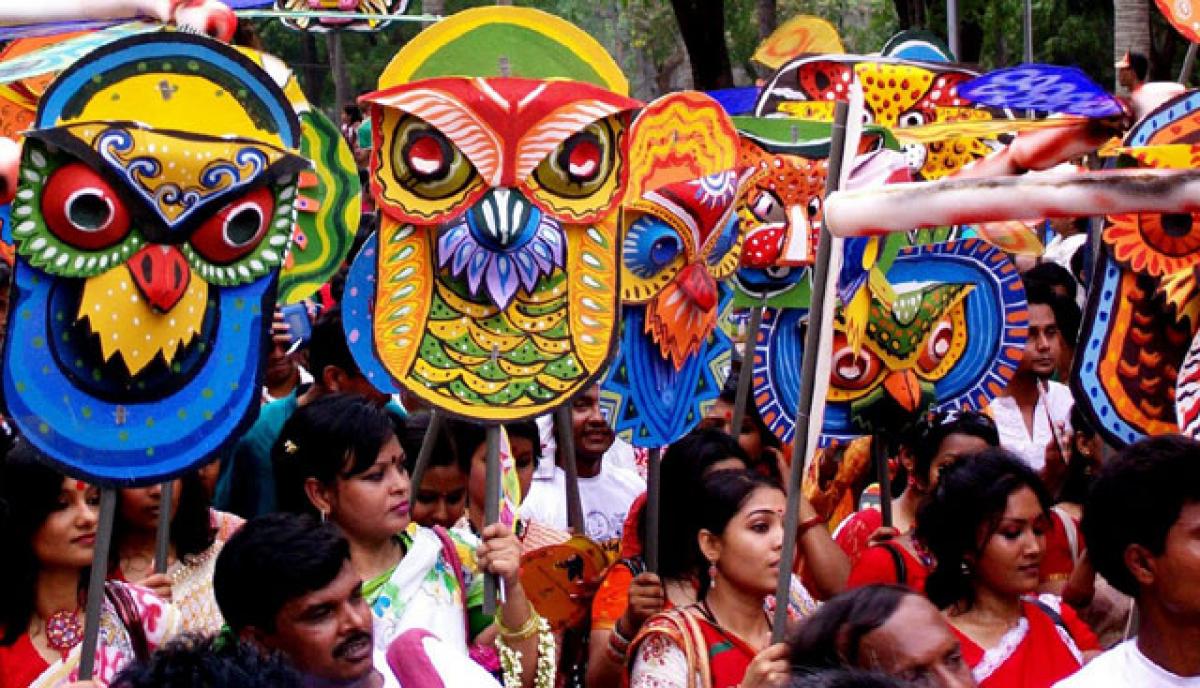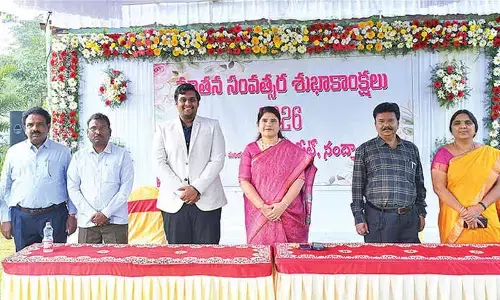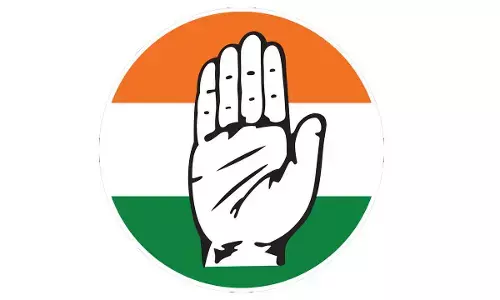Ties with Bangla hinge on tolerant societies

It is a delicate relationship. Slightest pressure and up goes the chorus: high-handed. Release the pressure and it is taken for granted
Celebrating “Pahela Baishakh,” the New Year, earlier this month in Dhaka was pure enchantment – exquisitely choreographed dance, music, in chorus by hundreds in colourful kurtas and the stately sari which, in Bangladesh, is the popular garb.
And all in Ramna Park, the vast maidan in the heart of Dhaka - masks of birds, animals, carnival-like, in a “Mangal Shobhajatra,” peace procession.
That the price of Hilsa, Bangladesh’s national fish, shoots through the ceiling during this season is sufficient evidence that 'Pahela Baishakh' feasts continue in homes across the country. We found ourselves in the residence of Mahfuz Anam, celebrated editor of Daily Star. Attendance at his Pahela Baishakh party is in inverse proportion to his difficulties with Prime Minister Sheikh Hasina. But neither he nor Shaheen, his gracious wife, look any the worse for the 84 cases Awami League workers have slapped on him across the country’s 56 districts for a “crime” gaining regional popularity - “sedition”. Obviously, the Anams are harassed, but much more worried should be the Prime Minister.
There is a growing perception of rising intolerance. There was no trace of anxiety on the face of Anam’s wife as she stood at the entrance welcoming guests. She had a strip of “bindis” in her hand - which she put, with diligent care, on the forehead of every woman who was without a bindi. Artists, writers, dancers, senior bureaucrats and a cross section of the diplomatic corps, including the US ambassador, elegant in a Dhaka sari - and a bindi.
The basic conflict in Bangladesh is between modernism and Islamism. Bunched together as Jamaat-e-Islami and Khaleda Zia’s Bangladesh Nationalist Party (BNP), the Islamists constitute about 30 per cent of the country living in an “Islamic” past, divorced from the magic of Pahela Baishakh. On the eve of the festivities, clerics with Jamaat support, issued a “fatwa” declaring Baishakh festivities as “haram” or impure. It must never be forgotten that in 30, out of its 45 years as a nation, Bangladesh has been under some form of Army rule. During the remaining 15, BNP’s Khaleda Zia and Awami League’s Sheikh Hasina have been routinely quarrelling.
Never have India-Bangladesh relations been better. Militant camps in the North East have been closed. There is relative tranquility on the migrant issue and business between the two countries is booming. Only the Chinese are doing better. Anil Ambanis and the Adanis are expected in Dhaka to sign $6 billion deals. There is much more in the pipeline including the water sharing issue.
The future depends on durability of the secular edifice. Here is a superb relationship shaping up, quite in contrast to the unfortunate one with Pakistan. But how secure can secularism and democracy be if the regime is sliding into intolerance and one party authoritarianism? What can New Delhi do? Does it see itself embarrassingly as someone in a glass house? It is a delicate relationship. Slightest pressure and up goes the chorus: high-handed. Release the pressure and it is taken for licence. Murmurs are rising against beef migration worth one billion dollars stopped by India. “It hurts the poor on both sides.”
This becomes a tool in the hands of Islamists to target the evolving “special relationship”. Complaints rise to a crescendo at India “throwing its weight” in world cricket. “In our 15 year history as a Test playing nation, we have not been invited to play a single Test match in India.”
I spent the best part of an evening being harangued on a “no ball” controversy I knew nothing about. Apparently during a match in Australia, Virat Kohli was caught in the deep but the umpire declared it a no ball despite protests by Bangladesh players. I rubbed my eyes as the incident was cited as India’s “hegemonic ways”.
“Le saans bhi ahista ki nazuk hai bahut kaam!” (Breathe very gently because the task at hand is of utmost delicacy)
Saeed Naqvi

















